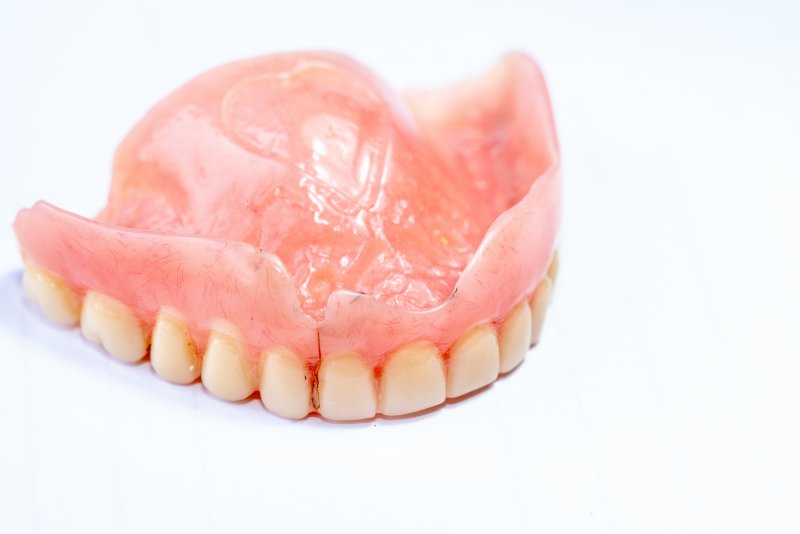
A set of dentures can effectively replace both your top and bottom arch of teeth with relative ease. When taken care of, they can last quite a long time and give you the confidence to show off your smile. However, they do come with a few caveats. For one, they won’t last forever, and using a denture that needs to be replaced can lead to numerous oral and overall health issues in the short and long-term. If you notice any of the following issues with your denture, it’s time to get it replaced.
Your Denture Feels Loose or Keeps Falling Out
When a denture functions properly, it stays in place, especially when you’re eating or chewing food. Since the prosthetic is personalized to your mouth exactly, it feels tight and secure throughout the day. If it never seems to want to cooperate, it likely needs to be replaced or at the very least adjusted. This is just one of the reasons why routine dental visits are so important as they give the dentist an opportunity to confirm if adjustments or replacements are needed.
They’ve Become Damaged or Discolored
If your denture develops a crack, the damage is only going to develop further the longer you go without replacement. Additionally, stains on dentures can become worse and more noticeable as more cracks develop. Food debris and dirt can get lodged in these cracks, increasing the risk of gum disease and infection. The moment the gum-colored base or ceramic teeth are cracked, you should start planning to repair or replace the denture entirely.
You Feel Discomfort or Notice Oral Sores
Do you notice pain or discomfort whenever you chew or bite? Are there multiple oral sores, lesions, or other changes present in your mouth? This isn’t normal when wearing dentures, making them another sign that you need to have them replaced. It’s especially important to have them examined as well since oral pain could also be a sign of bone resorption, which is when bone tissue breaks down inside the jaw.
Speaking Has Become Very Difficult
It’s normal to have a little more difficulty speaking when receiving a brand-new denture. This includes indistinct speech or excess salivation. Once you’ve gotten used to wearing them, your speech should return to normal. If you’ve had your denture for a long time and are only recently noticing trouble while speaking, schedule an appointment with a dentist to receive a replacement.
In some cases, it’s worth it to have your denture replaced with a better fitting prosthetic. Alternatively, you may want to consider implant-retained dentures for a more reliable fit. Regardless of the option you choose, it’s better than letting an ill-fitting denture ruin your day-to-day. Call a dentist today to start the process!
About the Author
On top of many years of clinical experience, Dr. John White has over 1,000 hours of hands-on learning from multiple institutions dedicated to continuing education. He can determine whether you need to have a denture replaced or repaired, go over your options with transparency and honesty, and make sure you feel confident about your new prosthetic. To schedule an appointment, you can contact him through his website.
